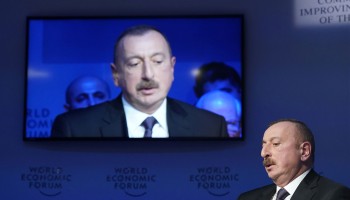Omtzigt, a member of the Netherlands’ Christian Democrat Appeal Party, sits on the Council of Europe’s Parliamentary Assembly. He wrote a highly critical letter on the issue to the council’s financial crimes unit in Strasbourg on Jan. 30.
“Recent developments in Cyprus in relation to the Magnitsky case have shown the failure of Cyprus to apply money laundering legislation in practice,” he said. “This case is a litmus test for whether Cyprus is now really paying attention to proper controls or whether it is only paying lip service to the recommendations.”
Cyprus was a money laundering center for the Klyuev Group, a Russian criminal gang who perpetrated a US$ 230 million tax fraud which was investigated by Magnitsky between 2007 and 2008. Magnitsky alleged Russian public officials were responsible for facilitating the fraud and protecting the criminals.
Magnitsky was subsequently arrested, accused of the very crime he was investigating and died in a Russian prison under questionable circumstances, allegedly beaten by prison guards and denied medical care. The scandal surrounding his arrest and death led to the adoption of the Magnitsky Act by the United States, which sanctions officials and individuals thought to be involved in Magnitsky’s death. It also denies visas to, and freezes the U.S. assets of, alleged human-rights abusers in Russia.
The US recently sanctioned five more individuals, which expands the blacklist under the Magnitsky Act to 39 names. The US Treasury designated Aleksey Vasilyevich Anichin, Yevgeni Yuvenalievich Antonov, Boris Borisovich Kibis, Pavel Vladimirovich Lapshov and Oleg Vyacheslavovich Urzhumtsev on Feb. 1.
A US official said four of the individuals were “directly implicated” in Magnitsky’s death, while the fifth added to the list was suspected of involvement in the torture of a Chechen human-rights activist, The Wall Street Journal reported.
A former client of Magnitsky gave Cypriot officials evidence of the group’s money laundering transactions four years ago, according to Transitions Online. Cyprus has not acted on the evidence, neither recovering any of the money nor initiating prosecutions.
“Cyprus has a duty to enforce money laundering legislation and not be a weak link in Europe in relation to Russian corruption and organized crime,” said Omtzigt.






